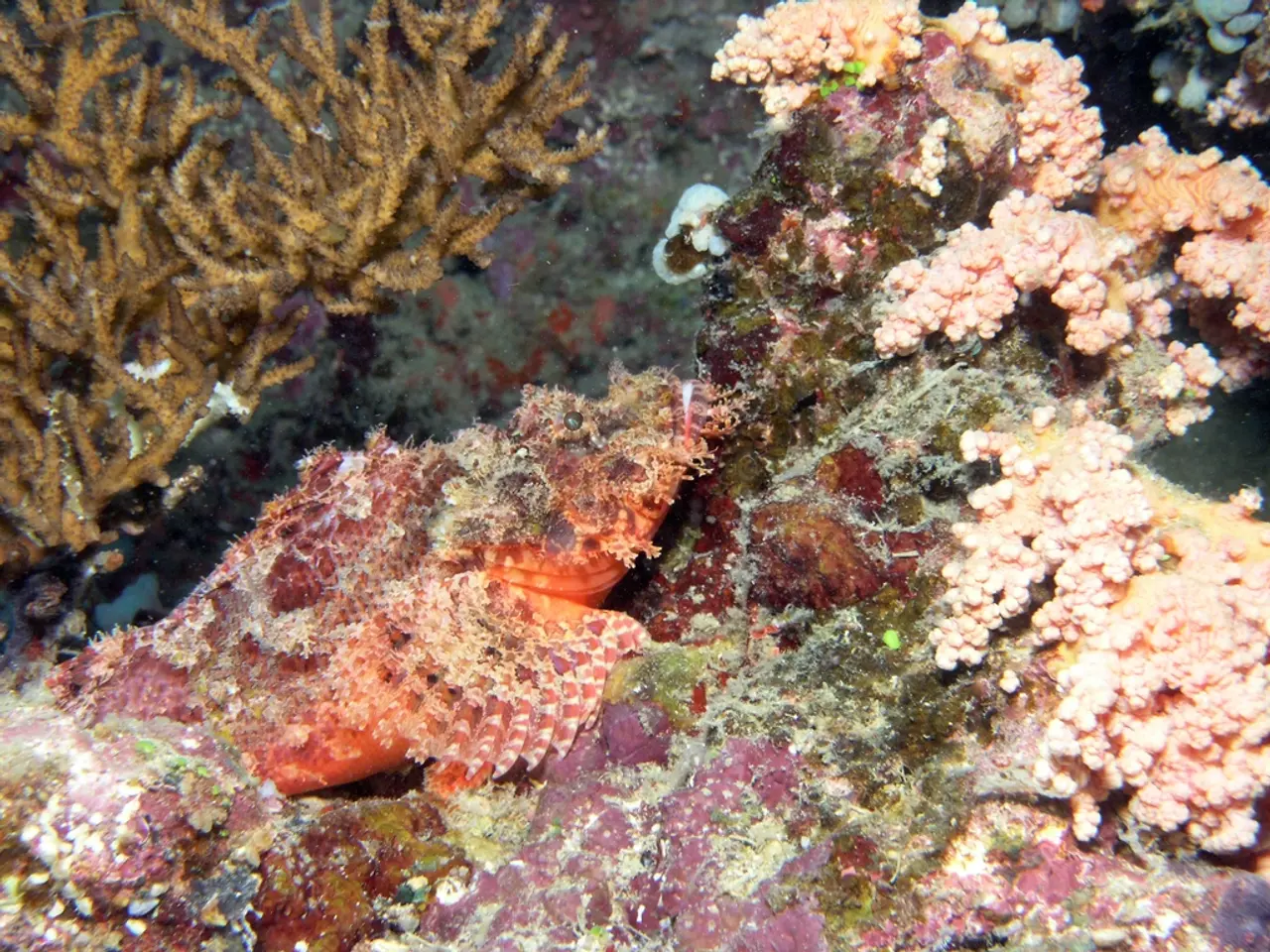Nation in the Pacific Islands pursuing deep-sea mining operation on ocean floor.
Deep-Sea Mining in the Cook Islands: Balancing Economic Gains with Environmental Concerns
The Cook Islands, a Pacific nation with one of the world's largest Exclusive Economic Zones (EEZ), is at the forefront of the deep-sea mining debate. The Cook Islands' Seabed Minerals Authority (SBMA) regulates mining activities primarily for battery metals and rare earths within its EEZ, with a cautious approach towards striking a balance between economic development and environmental protection.
The regulatory framework in the Cook Islands is closely aligned with the International Seabed Authority’s (ISA) rules, although these international guidelines are still in development. The Cook Islands independently control mining in their own waters and hold contracts for exploration in international waters, such as in the Clarion-Clipperton Zone.
Deep-sea mining companies are working on innovative methods to retrieve nodules from depths of up to five kilometers. Most companies are focusing on robotic harvesting machines that scrape up nodules, with selective harvesting techniques like underwater robots being explored to minimize seabed disruption.
However, there are significant environmental concerns. Mining disturbs the ocean floor, generating sediment plumes that can harm benthic ecosystems. Mining activities can destroy unique and often poorly understood seabed habitats critical for marine biodiversity. Removal of polymetallic nodules and disruption to rare earth element muds (REEM) may lead to loss of species, some of which may be endemic or unknown.
The Cook Islands and other Pacific island nations face regional opposition from environmental groups and neighboring countries concerned about the long-term ecological impacts and the "predatory" nature of deep-sea mining. Conversely, the Cook Islands have international partnerships, such as with China, for exploration and research, indicating geopolitical as well as economic motivations.
The Cook Islands remain cautious about moving forward without robust science and finalized international regulations. If mining begins on a commercial scale, the Cook Islands could become one of the largest mines for coveted metals like cobalt, nickel, and manganese. However, critics fear it will cause harm to marine life and disrupt oceanic migrations.
The demand for these metals has risen due to the increase in electric vehicles, rechargeable batteries, and durable alloys used in various industries. Despite the potential economic benefits, the Cook Islands' government emphasizes decisions will be guided by ongoing research, data, and science rather than set timelines.
In an interview, marine biologist Teina Rongo expressed distrust towards deep-sea mining, stating that his ancestors believed the deep ocean to be a place of the gods. Environmentalist Alanna Smith also expressed concern about the lack of knowledge about the deep ocean and its potential impacts on marine life.
Moana Minerals, a company, converted a former supply ship into a deepwater research vessel, the MV Anuanua Moana, fitted with chemistry labs, sonar arrays, and sensors to probe the seabed for coveted metals. Moana Minerals owns the rights to explore 20,000 square kilometers (7,500 square miles) within the Cook Islands' exclusive economic zone.
The Cook Islands signed an agreement with China for the "exploration and research of seabed mineral resources", reflecting the geopolitical as well as economic motivations behind their deep-sea mining ambitions. Deep-sea mining was a fringe idea until around 2018 due to the burgeoning electric vehicle industry, but the Cook Islands have now opened their ocean territory for mining exploration.
In conclusion, the Cook Islands' deep-sea mining activities are shrouded in controversy, with significant environmental concerns and regional opposition. However, the Cook Islands' government is taking a cautious approach, prioritizing research and science over timelines in their decision-making process. The future of deep-sea mining in the Cook Islands remains uncertain, but one thing is clear: the decisions made will have far-reaching consequences for the Cook Islands, the Pacific region, and the global environment.
References: 1. The Cook Islands and Deep-Sea Mining 2. Deep-Sea Mining in the Pacific 3. The Cook Islands and Deep-Sea Mining
- Emmanuel Macron, the French President, voiced concerns over the potential impact of deep-sea mining on the environment.
- The Cook Islands' deep-sea mining activities could have implications for international business, especially in the technology sector, as rare earth elements are crucial for many high-tech gadgets.
- Some experts argue that the climate-change mitigation efforts could be compromised if deep-sea mining leads to increased emissions due to disruptions in the weather patterns.
- The financial sector, particularly investors, should closely monitor the potential risks associated with deep-sea mining, as the industry's development could impact energy prices and market dynamics in the long run.
- The lifestyle choices of consumers, such as food-and-drink preferences and home-and-garden products, could be influenced by concerns about the environmental impact of deep-sea mining.
- Travel companies offering eco-tourism experiences in the Pacific may experience a decrease in bookings if deep-sea mining activities negatively impact regional biodiversity.
- The sports industry, particularly basketball, might see a decline in public interest due to increased awareness and concern about the lack of environmental responsibility in deep-sea mining.
- Sports-betting platforms should be aware of legislative changes and potential backlash related to deep-sea mining, as public sentiment can influence gambling trends.
- Russia, with its strong presence in technology, finance, and energy, has shown interest in deep-sea mining activities. However, their involvement could raise questions about data-and-cloud-computing security and the impact on cloud computing infrastructure.
- The scientific community urges conducting more research on the effects of deep-sea mining on environmental science, as the lack of understanding of deep-sea ecosystems could lead to unintended consequences.
- The real-estate market in the Cook Islands might experience variations in demand based on perceptions of the environmental risks and benefits associated with deep-sea mining.
- Throughout this debate, it is crucial for various sectors, including finance, energy, lifestyle, travel, sports, and technology, to advocate for responsible development and sustainable practices in deep-sea mining.





